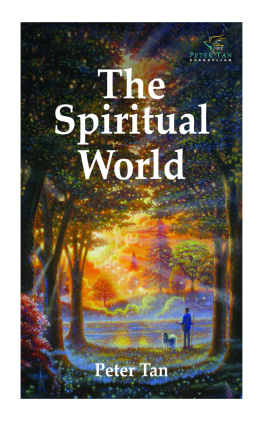ANOTHER WAY OF SEEING
ANOTHER WAY OF SEEING
essays on
Transforming Law, Politics and Culture
PETER GABEL

QUID PRO BOOKS
New Orleans, Louisiana
Published in 2013 by Quid Pro Books, at Smashwords.
Copyright 2013 by Peter Gabel. All rights reserved. No part of the material protected by this copyright notice may be reproduced or utilized in any form or by any means electronic or mechanical, including photocopying, recording, or by any information storage and retrieval system, without the written permission of the publisher.
ISBN 978-1-61027-199-8 (eBook)
ISBN 978-1-61027-197-4 (hbk.)
ISBN 978-1-61027-198-1 (pbk.)
Quid Pro, LLC
5860 Citrus Blvd., Suite D-101
New Orleans, Louisiana 70123
www.quidprobooks.com
Publishers Cataloging in Publication
Gabel, Peter.
Another way of seeing : essays on transforming law, politics and culture / Peter Gabel.
p. cm. (Contemporary society)
Includes index.
ISBN 978-1-61027-199-8 (eBook)
1. Political cultureUnited States. 2. Political psychology. 3. LawUnited StatesCritical legal studies. 4. Political sociology. I. Title. II. Series.
JA76.3.G42 2013 306.21762
2013936372
Cover and all copyright Robert Bergman. All rights reserved. No photograph, in whole or in part, may be reproduced, displayed, stored in a retrieval system, or transmitted in any form or by any means now known or hereafter developed without the prior written permission of Robert Bergman. Derivatives are strictly prohibited.
Cover design copyright Michele Veade.
Author photograph on page copyright Kathy Voutyras, used with permission.
To Rabbi Michael Lerner: Beloved lifelong
friend, comrade, and intellectual partner
CONTENTS
ANOTHER WAY OF SEEING
INTRODUCTION
A Spiritual-Political Way of Seeing
T HIS BOOK INCLUDES my collected essays written roughly during the first decade of the 21st century, and is a follow-up to my prior volume The Bank Teller and Other Essays on the Politics of Meaning (subsequently referred to as The Bank Teller ), which contained essays and some law review articles describing my understanding of the social meaning of historical, political, and cultural events occurring during the last part of the prior century. My aim in all this work has been to present an approach to understanding the world that shifts our emphasis on what constitutes the main shaping influence of all social reality from the material world to what might be called the spiritual dimension of social lifefrom the desire for things to the desire for love, community, solidarity and connection with others, or as I will explain shortly, for mutual recognition of our common humanity as authentic Presence.
Where we place our emphasis in interpreting the world is critical to being able to act together to influence historical events in a positive way and help to create a better worlda world more capable of realizing the yearnings of the human soul. Or in other words, our social theory is central to our capacity for effective and meaningful social action, in the sense that social theory is really nothing more than a way of seeing, and in order to do the right thing, to devote our energies in the time that we are here to worthwhile projects that are most likely to improve our collective lives and the world that we collectively inhabit, we must learn to see what is going on in front of us in a way that allows us to interpret its social meaning as accurately as possible.
The stakes involved in choosing between different social theories and narratives can be illustrated by a discussion of Lars von Triers Melancholia a movie that has received a great deal of attention from critics and moviegoers. In this remarkable film, a woman named Justine, played by Kirsten Dunst, gets married in a wedding ceremony that is both extraordinarily opulent (vast sums of money are spent by her brother-in-law to assure that this is the happiest day of her life) and yet profoundly alienating in the sense that virtually all the characters, including Justines parents and other family members, are represented as unhappy, selfish, and preoccupied with the details of the wedding ritual over the substance of any profound human bond.
Meanwhile, unbeknownst to most of the guests but somewhat mystically understood by Justine and less mystically and more scientifically so by her brother-in-law, a planet that has been hidden behind the sun has somehow shifted in its alignment and is rapidly heading toward earth. Although Justine is obviously deeply disturbed and disengaged while enduring the experience of her own wedding, she becomes more centered and present in the days following the wedding as the danger of collision with the errant planetnamed Melancholiabecomes more likely. In the final scene, as Justine sits holding hands with her frightened sister and innocent young nephew in a hastily constructed magic cave that Justine has told the boy will protect them all, it is Justine who seems spiritually prepared for the apocalyptic end that awaits them and all of the world. While during the early part of the film Justine appeared to be the one doomed to disorientation and debilitating melancholia, at the end it is she who becomes at one with the profound and sudden ending of both the collective life and the collective history and culture of the human experience, of human existence itself.
The theory that has informed most of the reviews of Melancholia has been quite explicitly Freudian, perhaps because Freud wrote a very famous book called Mourning and Melancholia that addressed the way that lossin particular unmourned losscan create a pathological attachment to the lost object that leads one to become in-dwelling and withdrawn, to lose all interest in life, and to become quite literally vitiated of human vitality. This meaning of the word melancholia, drawn from Freuds good work on the subject, has then been projected into the movie, so that Justine is identified as deeply depressed by the disturbed nature of her conditioned upbringing, which reaches a kind of apotheosis in the dysfunctional and dysphoric wedding ceremony. This depression is interpreted as a manifestation of her melancholia, her loss of vitality and interest in life. In Freuds analysis, the failure to work through the experience of loss through the process of mourning both expresses and reinforces an infantile belief on the part of the sufferer that he or she is responsible for the loss of the loved object, and this guilt not only becomes a primary cause of the sufferers unrelenting attachment to the lost object, but also engenders an unconscious need for punishment to partially expiate the guilt, or better, to satisfy the guilt fixation.
For the critics who adapt the Freudian way of seeing to the movie, Justine improves at the movies climactic ending because that long-deserved punishment has finally arrived in the form of the planetary collision. While the brother-in-law commits suicide and the sister cries, Justine is fully present emotionally and awaits the end with equanimity and perhaps even joy. While not all critics adopt all of the components of the Freudian theory in analyzing the film, there is a consensus that the film is depressing, that the characters are dreadful human beings, that Justine is a deeply disturbed woman, and that it portends one eccentric but talented directors vision of the end of the world.
While the Freudian interpretation is true to the facts of the movie in the sense that the existing facts can be seen in a way that makes them consistent with the theory, the interpretation is, in my opinion, completely wrong. To my way of seeing, Justines reactions to the alienation and dehumanization of her social environment are understandable and even courageous, although because she is presented to us as socially absorbed into this worldas a kind of passively willing participant in her dreadful wedding ceremonyshe is far more isolated and far crazier as a result than she would have been had she instead, say, joined the womens movement or Occupy Wall Street. But considering the pathological social place in which she found herself as a thoroughly isolated woman, it was obvious to me that she was throwing all of herself into her resistance to what was being made of her from the outside. Her recovery during the course of the movie as a result of the approach of the planet, to my eyes, manifested her emergence into mental health because the arrival of the errant planet would liberate both her and also all of humanity from the social alienation, brutality, and inauthenticity into which our world had fallen. In a beautiful final scene, it is Justine who can reassure her little nephew of his security in the magic cave they construct out of sticks because this magic cave, in which Justine, her nephew, and her sister hold hands as the end approaches, is a new little world of authenticity and love and spiritual recovery of their simple common humanity. I left the theater with a full heart and a smile that I could not get off of my face, and I felt that my true selfthe authentic longings of my soulhad been recognized and confirmed by Justines final beauty and presence in the face of death and of the limits of existence itself. We really are here together if only we will embrace one another.
Next page
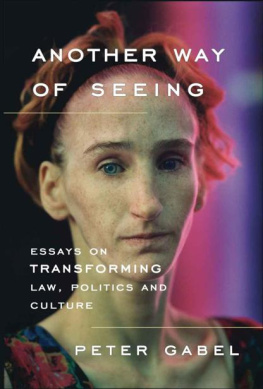

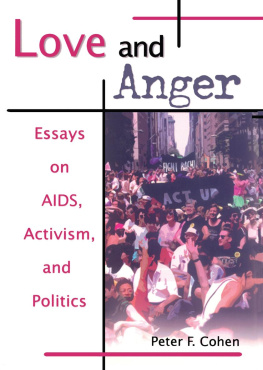

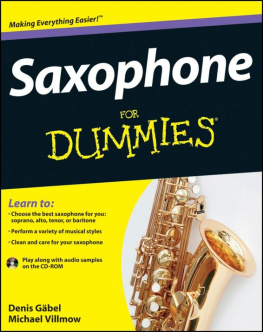
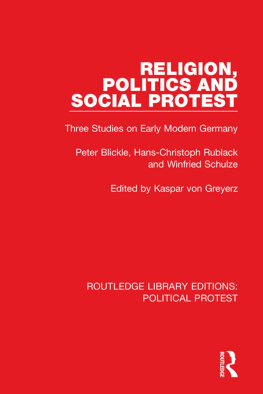
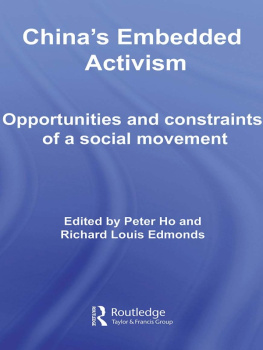
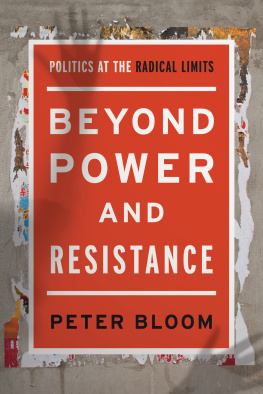
![Christopher R. Gabel - Great Commanders [Illustrated Edition]](/uploads/posts/book/291126/thumbs/christopher-r-gabel-great-commanders.jpg)
